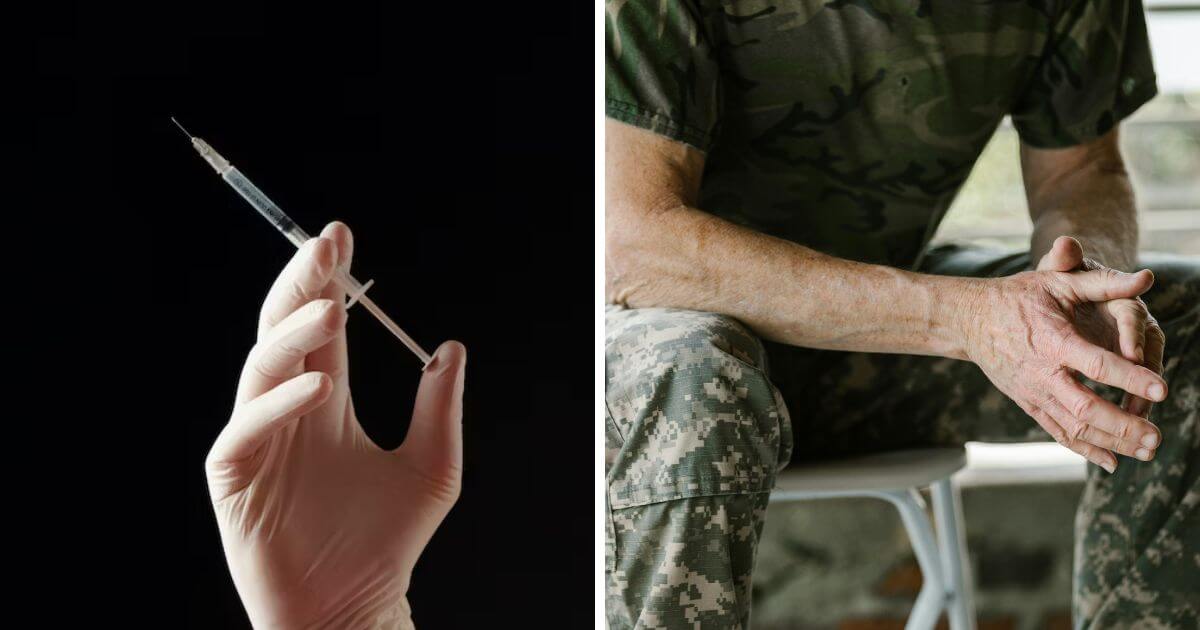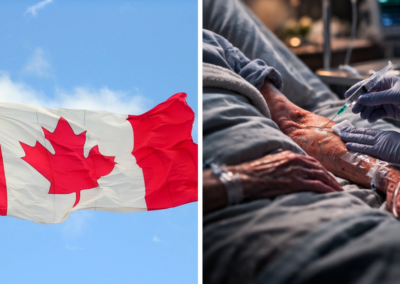Another Canadian Armed Forces veteran has come forward saying he was offered euthanasia from a Government department responsible for pensions, benefits and services for war veterans after he contacted them for help with post-traumatic stress disorder (PTSD).
David Baltzer, who served two tours in Afghanistan, explained how a Veterans Affairs Canada (VAC) agent brought up the topic of “medical-assisted suicide”, saying “I was in my lowest down point, it was just before Christmas”.
“He says to me, ‘I would like to make a suggestion for you. Keep an open mind, think about it, you’ve tried all this and nothing seems to be working, but have you thought about medical-assisted suicide?’”.
“It made me wonder, were they really there to help us, or slowly groom us to say ‘here’s a solution, just kill yourself’”.
Baltzer had contacted VAC for support after the counselling and therapy he received on his return from Afghanistan – where he had seen “plenty of combat” – failed to improve his condition. Baltzer had then tried to deal with the trauma through the use of alcohol and substance abuse.
Following the VAC agent’s offer, Baltzer was left reeling, saying “It just seems to me that they just want us to be like ‘f–k this, I give up, this sucks, I’d rather just take my own life'”.’
“That’s how I honestly felt”.
Veterans offered euthanasia
Situations in which veterans have been offered assistance in suicide have occurred on other occasions in Canada since the original legislation that allows euthanasia and assisted suicide was passed in 2016.
Retired corporal, Christine Gauthier, who competed in the 2016 Rio de Janeiro Paralympics, testified before a Canadian House of Commons Veterans Affairs Committee at the beginning of December 2022 that an unnamed veterans affairs case worker had said, in writing, that Ms Gauthier could be provided with a euthanasia device when all she had wanted was a stairlift to be installed in her home.
Ms Gauthier, 52, said “I have a letter saying that if you’re so desperate, madam, we can offer you MAID, medical assistance in dying”.
Canadian veteran Kelsi Sheren said that she knows almost a dozen former military servicemen who have been offered medical assistance in dying by Canadian authorities, calling this “disgusting” and “unacceptable”.
“When you take people who were willing to put their lives on the line for you, for your safety, then you have the audacity to tell them [it’s] better if you just die… it is one of the most disgusting things”.
“It’s unacceptable, and it is one of the most infuriating things to come down from the Canadian administration in the last decade”, she added.
Concerns about assisted suicide raised in the UK
Baltzer’s account comes as Kim Leadbeater’s Terminally Ill Adults (End of Life) Bill, which narrowly passed its Third Reading in the House of Commons, now moves on to the House of Lords.
Prior to last year’s vote at Second Reading, Conservative MP Tom Tugendhat said “I have seen too many reports, including from countries with jurisdictions that I respect very greatly like Canada, where I’ve seen somebody, seen reports through military friends about somebody with PTSD, who instead of getting access to the care that he required was being suggested that actually care was never going to be available, and would never help, and that actually he should choose an easier and I quote ‘cheaper’ alternative, that is wrong and I will never support it”.
Trudo Lemmens, professor of law at the University of Toronto, who initially supported Canada’s assisted suicide and euthanasia law, said “One of the most worrying aspects of the Canadian experiment is it shows that once you start legalising, there is a risk that a significant number of physicians normalise this practice”.
“Once it’s implemented, there will be advocacy groups pushing for further expansion, and I see that already in the English debate”, Lemmens added. A leading UK campaign group and a number of high-profile individuals are not satisfied with the expected scope and are vocal about their wish to see the scope of Kim Leadbeater’s Terminally Ill Adults (End of Life) Bill widened.
Spokesperson for Right To Life UK, Catherine Robinson, said “It is shocking, but sadly no longer surprising, to hear accounts of former Canadian service men and women being offered euthanasia rather than the support and compassion they need to help them recover from distressing combat situations”.
“Members of the House of Lords need to pay close attention to the worrying evidence from Canada, which shows that once assisted suicide and euthanasia are legalised, the practice is easily abused. This must not become the reality in Britain; people deserve support and protection rather than offers of assistance to die”.












